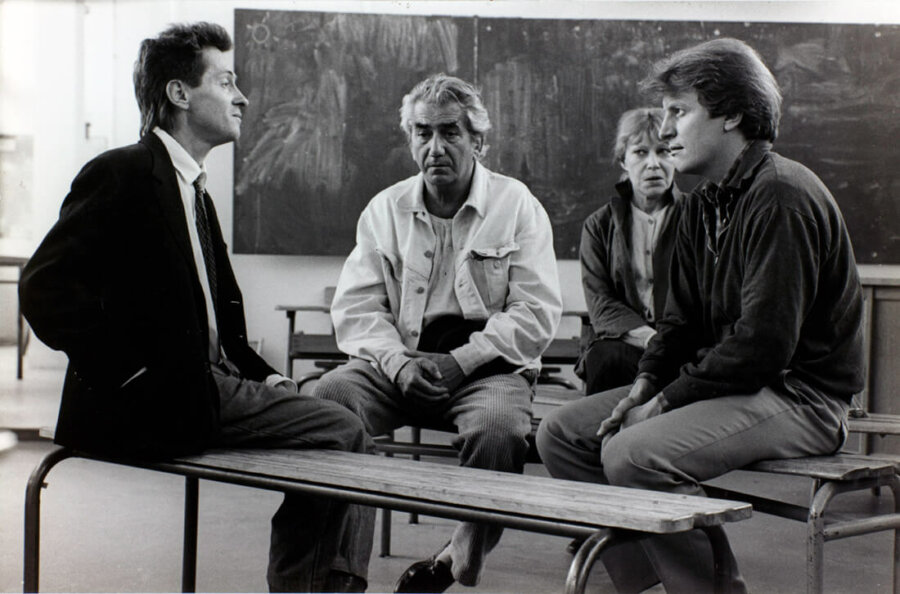
Course & Conference
Cinema and Counter-Power / 2
Seminar directed by Marie-José Mondzain and Jean-Michel Frodon
Friday 06 March 2015 • 4:30 PM
Jeu de Paume – Paris
Film critic, writer and teacher Jean-Michel Frodon was editor of Les Cahiers du Cinéma and runs “Projection publique,” the cinema blog of Slate. Philosopher, emeritus director of research at the CNRS, Marie-José Mondzain’s interests include images and their power, which is the theme of several of her books.
In what sense can images embody an alternative power source?
Images were long despised or even condemned by those who controlled thought. They can manifest their contestatory, contradictory turbulence in relation to all forms of power. This threat is inseparable from what it is that can make any image a figure of desire and an offer of resistance and liberty. The power of images is bound to interest any dominant agency, which will seek to confiscate this energy for its own advantage.
Why the particular interest in cinema?
Because its particular way of articulating the real and fiction places it in a strategic position when it comes to questioning the possibilities of transforming our world. We want to provide viewers with critical resources to deal with what is overwhelmingly presented to them in terms of pleasure, sensation or highly dubious compassion.
What themes will be discussed in the seminar?
We have identified four modalities capable of activating counter-power – not an exhaustive selection, obviously: laughter, childhood and minorities, and public space and the environment. To these four angles of approach can be added a session with Avi Mograbi, an artist who has been invited to Jeu de Paume at the same time, and whose work mobilises numerous forms of counter-power. Each meeting will be preceded by the screening of a film directly related to the theme of the day.
Marie-José Mondzain et Jean-Michel Frodon
THE STRENGTH OF THE WEAK: CHILDHOOD
Friday 6 March
At 4:30 pm, screening of
— En rachâchant by Danièle Huillet and Jean-Marie Straub (France, 1982, 7’)
After Ah ! Ernesto by Marguerite Duras.
A stubborn little boy lives the dream of all children of primary school age: being able to tell their teacher to “go jump in a lake.” “The film is funny and fast. It is not a short, but a fully-fledged film, albeit a short one.”
— Les Enfants by Marguerite Duras (France, 1984, 90’)
Marguerite Duras described her film as follows: “It is an infinitely desperate comic film whose subject has to do with knowledge.”
At 6:30 pm: interventions by Marie-José Mondzain and Jean-Michel Frodon articulated around these two works and short films: The Paper Flower Sequence by Pier Paolo Pasolini and The Bread and Alley by Abbas Kiarostami.
Admission: 3 euros, or free to members or holders of a ticket for the day. Information: infoauditorium@jeudepaume.org
